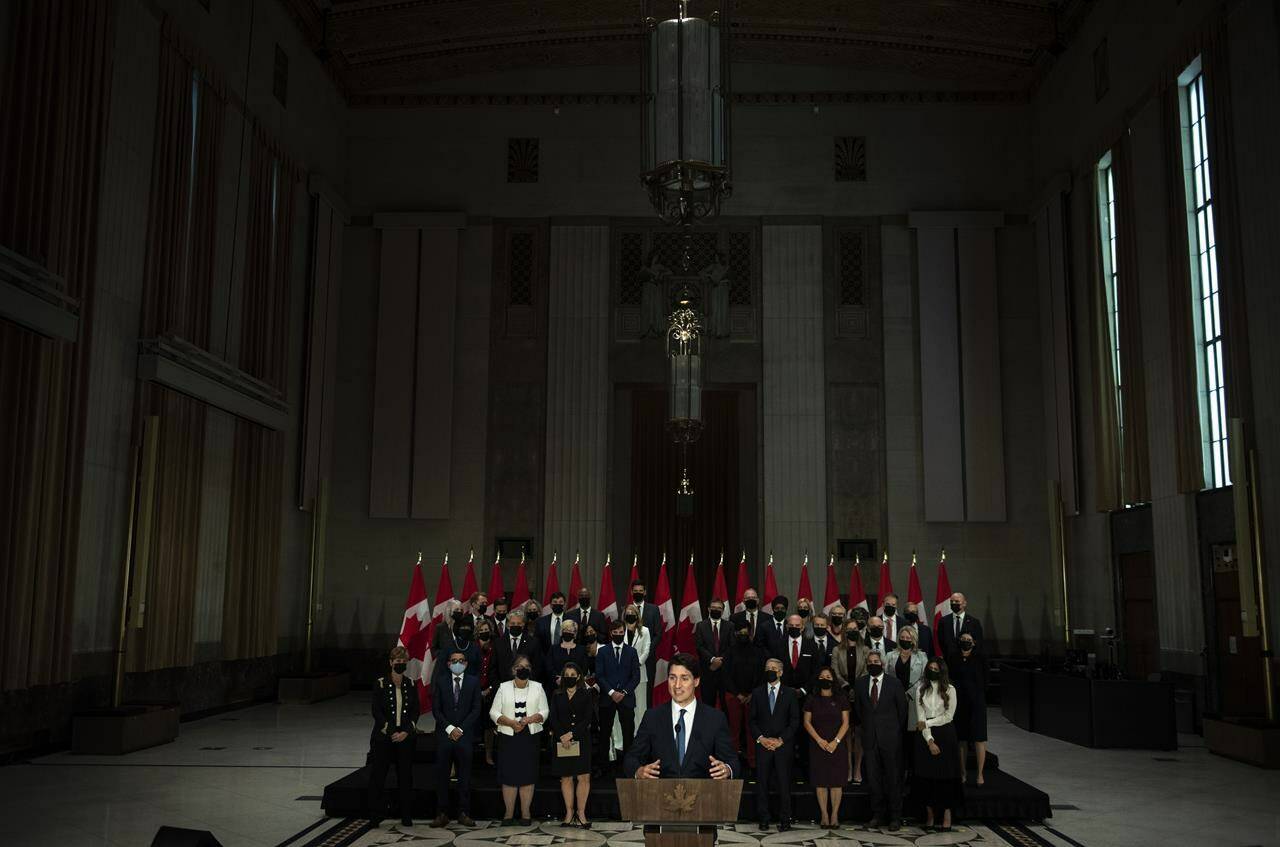Prime Minister Justin Trudeau is ordering his entire cabinet to keep their eye on the government’s broader goals of creating a more inclusive and resilient country, even as the COVID-19 pandemic is once again threatening to thwart their ambitions.
Trudeau’s new mandate letters to the 38 members of cabinet were published online Thursday and they show that ending the fight against COVID-19 remains the top priority across government.
But the prime minister says the pandemic cannot throw everything off course and his letters highlight the need to fight the “existential threat” of climate change and to ensure a future where all Canadians have “a real and fair chance at success.”
“This decade has had an incredibly difficult start, but this is the moment to rebuild a more resilient, inclusive and stronger country for everyone,” Trudeau said in the opening paragraphs that topped each letter.
That includes addressing systemic inequities and racism and the letter also orders every minister to take the time to implement the United Nations Declaration on the Rights of Indigenous Peoples (UNDRIP) in their departments.
“This year, Canadians were horrified by the discovery of unmarked graves and burial sites near former residential schools,” he said.
“These discoveries underscore that we must move faster on the path of reconciliation with First Nations, Inuit and Métis Peoples. We know that reconciliation cannot come without truth and our government will continue to invest in that truth.”
The pandemic knocked many of the plans outlined in the 2019 mandate letters off course, and the latest batch hints at a sense of urgency to finally deliver on some of the Liberal government’s biggest promises.
Trudeau is also requiring every minister to come up with a plan for implementing everything in their mandate letters and regularly report publicly on their progress.
Every minister also got a list of bullet points specific to their portfolio, and because the mandate letters are coming almost two months after the cabinet was named, some of those points are already underway.
Finance Minister Chrystia Freeland knocked off a handful of her mandate orders this week in the fall economic statement, including money to improve ventilation projects in schools and small businesses, expanding a tax credit for teachers who buy classroom supplies to include technology and extending some pandemic benefits for workers and hard-hit industries like tourism.
Freeland is also instructed to champion the adoption of a global minimum standard on carbon pricing, accelerate Canada’s G20 commitment to eliminate fossil fuel subsidies and develop a plan to phase out public financing of the fossil fuel sector, including by federal Crown corporations.
In question period on Thursday, Opposition Conservative Leader Erin O’Toole asked why inflation was not included in Freeland’s letter, to which she responded that Canada’s GDP grew 5.3 per cent in the third quarter and it has recouped all the jobs lost during the pandemic.
Days after an apology was issued to survivors and victims of sexual misconduct in Canada’s military, Trudeau is also asking Defence Minister Anita Anand to move to diversify her department in a bid to bring “meaningful and lasting change” to the country’s Armed Forces. He is also asking her bring external oversight on sexual misconduct complaints and investigations that mean they are managed “outside of the chain of command.”
The mandate letters also call on Emergency Preparedness Minister Bill Blair to bolster national resilience and readiness for future pandemics and other emergencies through enhancing the management of strategic stockpiles, improving the operation of health surveillance systems and modernizing how services and benefits are delivered to Canadians in times of crisis.
Justice Minister David Lametti is urged to prioritize the implementation of the federal UNDRIP law and the appointment of a special interlocutor to further “advance justice” on unmarked graves and address the legacy of residential schools.
In Foreign Affairs Minister Mélanie Joly’s letter, the word “China” is not mentioned, but she is mandated to develop and launch a comprehensive Indo-Pacific strategy to deepen diplomatic, economic and defence partnerships and international assistance in the region.
Joly is also told to support other ministers in working to ensure that people around the world have access to health interventions to fight COVID-19, including vaccines, therapeutics and strengthened health systems.
International Development Minister Harjit Sajjan is included in those efforts, with his letter calling for Canada to donate of at least 200 million vaccine doses to vulnerable populations around the world through COVAX by the end of 2022 and provide additional funding for enhanced testing and vaccine production capacity in developing countries.
—Mia Rabson, The Canadian Press
RELATED: Governor General centres ‘lifelong journey’ of reconciliation in throne speech

